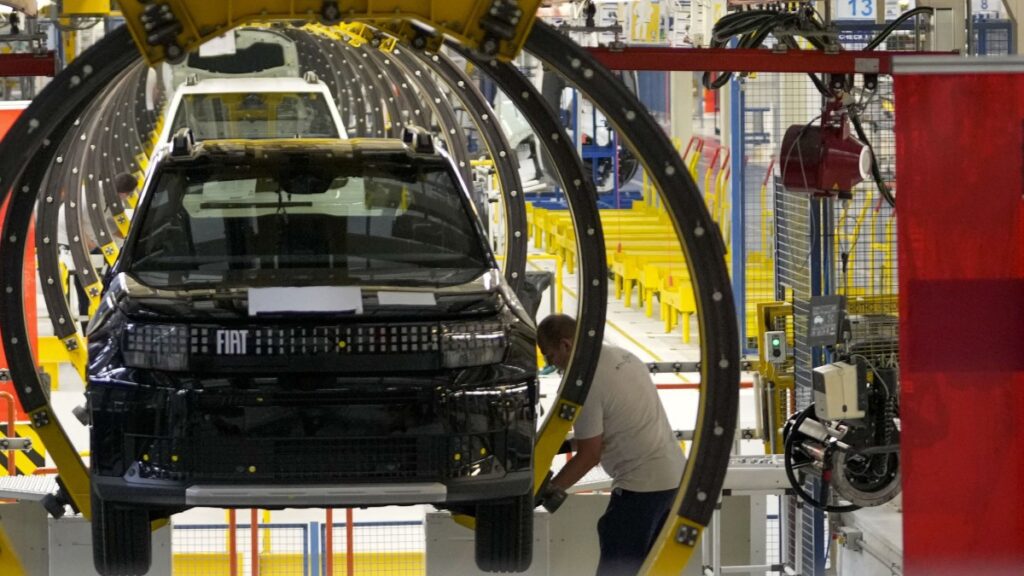Stellantis ready to 'fight' China in Europe's EV market, CEO says

A factory worker prepares an all-new Fiat Grande Panda in the assembly hall of the Stellantis factory in Kragujevac, Serbia, Monday, July 22, 2024. (Getty Images)
KRAGUJEVAC, Serbia — Stellantis is ready to “fight” for its place in Europe’s electric vehicle market against strong competition from Chinese carmakers, its CEO Carlos Tavares said on Monday, as the group presented its new EV production line in Serbia.
“We are going to be challenged and I would say brutally challenged by the Chinese offensive on the European market,” Tavares said on Monday. “At Stellantis we are ready for the fight.”
“We are going to demonstrate to them that … we are hard-working, we are going to demonstrate to them that we have the right technology, we are going to demonstrate to them that we are a very fierce competitor,” he said.
Serbia, which is pushing to become a key European supplier of more sustainable row materials, batteries and electric vehicles, signed a 190 million euro ($206.9 million) deal with Stellantis in 2022 for the production of an electric vehicle at its car manufacturing plant in Kragujevac.
The plant is seen as a generator of growth for the entire region.
“This is a huge opportunity for us. We are the only country in the Western Balkan region that has electric (car) production,” Serbian President Aleksandar Vucic said at a ceremony to present the new production line.
As part of its drive towards more sustainable economy, Serbia has reinstated a license for Rio Tinto to develop Europe’s biggest lithium mine in a potential boost to the continent’s electric vehicle industry and.
It is eyeing annual lithium output of 58,000 tons, enough for about 1.1 million electric vehicles or about 17% of the European market.
On Friday Serbia signed a deal with the European Union to give the bloc access to raw materials mined in Serbia and strengthen their ties on sustainable raw materials production, battery manufacturing and EVs.
The CEO of Germany’s Mercedes-Benz, Ola Kaellenius, said on Friday his company is a potential customer of lithium from Serbia and would support bringing more of the battery value chain to Serbia.



